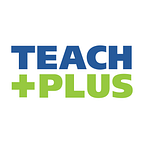Empowering educators: Structured literacy transforms how students learn to read
By Kristyn Kahalehoe
When 5-year-old Kaeden walked into my classroom, I could tell he was excited and eager to learn. This was not his first time in school; however, it was his first time at my school. We started the year as we always do: learning routines and schedules, practicing being a good friend, listening to books, and getting to know each other. During our phonics, reading, and handwriting lessons, Kaeden always paid very close attention. He participated, followed directions, didn’t interrupt and worked hard: every teacher’s dream.
But as the year progressed and the work became more difficult, I noticed that Kaeden was struggling to read. So I did what most teachers do: I pulled him for extra small group and individual practice with a mix of written work and games, I modified lessons for him, and I checked in on him frequently during whole-group instruction.
Despite my best efforts, Kaeden fell further and further behind. He became hesitant. Instead of being excited for school, he was now sad. And he no longer paid attention during reading lessons, which had an impact on his oral language and comprehension: every teacher’s nightmare. I was failing this child as his teacher, and I didn’t know what else to do or how to help him. He was sinking and I felt like I was the anchor pulling him down further and further. I didn’t have the best practices, curriculum, and assessments to help Kaeden succeed.
Then, I found an ad for Fairleigh Dickinson University’s Orton Gillingham teacher program and I applied. During my time in the program, I learned about structured literacy, an entirely new way of teaching reading: a systematic, explicit approach grounded in the science of how we learn to read. There was a logical scope and sequence for teaching letter-sound relationships to help kids like Kaeden crack the code of reading. I found the multisensory strategies I learned and ways of implementing them highly effective.
In the program, I was assigned to teach two students diagnosed with dyslexia. As I worked with them using my new knowledge, expert structured literacy instructors oversaw my practice. We met twice a week for two years, and at the end of our training, I felt empowered. My teaching practice had improved immensely, and I had gained so much knowledge about the English language.
Kaeden was in 2nd grade and in a different school by the time I finished my program and felt equipped to help students like him regain his excitement and eagerness. But I wasn’t there to help him learn to read. I think about Kaeden at least once a week and I hope that he has teachers who are equipped to help him succeed where I wasn’t. I hope that his life is filled with books and that he regained his joy of learning.
I may never know what happened to Kaeden, but I do know that now I am prepared to teach children to learn how to read. But too many teachers across Pennsylvania still haven’t been trained in structured literacy and don’t have access to evidence-based curriculum and assessments. And too many students like Kaeden aren’t being identified as struggling readers and receiving interventions grounded in the science of reading.
Fortunately, progress is being made at the state level to ensure that all students have access to evidence-based teaching and instructional materials. Recent updates to teacher certification regulations require that current and future teachers be trained in structured literacy; this training began in districts this school year and must begin in educator preparation programs by this fall. And two bipartisan companion bills, House Bill 998 and Senate Bill 801, are currently moving through our legislature, with SB 801 on track to pass in the Senate this spring.
These bills would require districts to adopt curricular materials aligned with the science of reading, screen early elementary students for reading difficulties, and implement intervention plans for struggling readers. They would also provide grant funding to defray the costs of adopting new aligned instructional and assessment materials. Together, these policies, if enacted and well-implemented, would address the needs of educators, guide teachers to provide the best possible data-driven literacy instruction, and help improve literacy outcomes for all students. It’s critical that Governor Shapiro and our legislative leaders ensure these bills are passed and funded as part of the 2024–25 budget process.
We can’t afford to leave our students’ success in reading up to luck or chance. All teachers must know how to teach literacy and use practices backed by research in order for our instruction to be effective. Kaeden and all our students deserve nothing less.
Kristyn Kahalehoe teaches kindergarten in the School District of Philadelphia and is a 2023–2024 Teach Plus Pennsylvania Policy Fellow.
